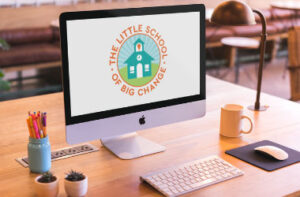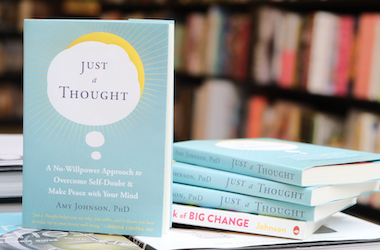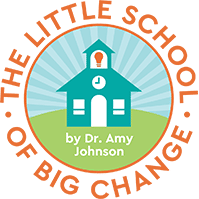One of the difficulties with being in an abusive relationship is that the abuse does not occur consistently. Periods of, or instances of abuse, can be interspersed with experiences of tenderness, seemingly fiscal responsibility, social and personal charm. It is possible that attributes of your relationship in the early years such as acts of love and apparent adoration, will in later years, be meted out – just enough to create confusion and doubt, so that you might be left wondering if the emotional abuser is really as bad as you started to believe. It is easy if you are feeling isolated and rejected, to succumb to the loving gestures or apparent sense of responsibility.
Strategic Manipulation in an Emotionally Abusive Relationship
As you are becoming alarmed about the money your abusive partner has been secretly spending, they, perhaps sensing your unease, start spending on you.
Your spouse organizes a date that you hope is a sign of healing within your abusive marriage. You realize with hindsight and perhaps even during the date, that the venue and occasion were chosen to demonstrate their apparent qualities to an audience they seek to impress.

My emotionally abusive husband became very involved in a professional organization and spoke loudly of his commitment to it. I was thrilled that he was trying to bring about a greater culture of community and service within the organization. It was only with hindsight and the evidence of bank statements and photos that I learnt of a much more self-serving agenda.
I remember a friend’s partner describing my friend in unusually poetic and glowing terms. It struck me as odd as we were close girlfriends. Later, as she confided how she had come to see how she was trapped in an emotionally abusive relationship, she cited that as an example of his treatment of her in public compared with his treatment of her in private.
What’s to be Gained by Knowing You are in an Abusive Relationship?
Knowledge is power and rarely is that as evident as in the duration of an emotionally abusive marriage or partnership. Once a victim can identify the signs of emotional abuse, it is easier to see the cumulative effect the abuse has had on them. It also becomes easier to see how thinking about the person or situation has been affected by the diminished and unequal role of being the victim. Gaining insight into the impact of the abusive behaviors on yourself will enable you to see the treatment you have received for what it is. Abuse. Understandably when your mind goes into overdrive in trying to protect yourself, you will come to recognize your own compromising behaviors such as tiptoeing, accepting isolation or humiliation. Once this knowledge is gained, you are in a better position to refuse to be treated in this way. The knowledge of the reality of what is going on will empower you to make different choices.
Signs that You are Ready to Move from an Emotionally Abusive Relationship?
Once you are further along the path of identifying the signs of emotional abuse and their effect on you, you may notice another set of characteristics in the way you are surviving being in the ongoing abusive relationship.
Contempt for the Abuser
After years of emotional abuse and seeing the recurring patterns of your partner’s abusive behavior, you may reach a point of complete contempt for them. This may occur as you regain a stronger sense of your own self, especially your sense of self-worth. The intimidation you once experienced from their aggression or manipulation, will diminish as you begin to recognise how this has been used against you. The knowledge that allows you to identify signs of emotional abuse, gives you a power that will diminish the power of the perpetrator of abuse, and will give you greater freedom in being able to move on from such an emotionally abusive relationship.
Control
As a victim of relationship abuse, it is likely that you have had undue control exerted over you. This could have occurred within multiple areas of your life, such as friendships and family, finances and household decisions, sex and intimacy. Because of your diminished self-esteem and perhaps the fear that has prevented you from speaking out, their control over you is likely to have intensified with time. But once you have begun to see the way you have been controlled and used, you are on the path of rejecting all forms of emotional abuse.
Getting Support when You are in an Emotionally Abusive Relationship
The loneliness of being in an abusive relationship can be a heart-breaking and isolating experience. If you are feeling the need to keep face for the sake of family, of shared business interests, of public persona, a whole other dimension is added to the challenge you face, once you become unwilling to accept being in this situation. You need support. If you cannot get that amongst friends who may well be friends of both of you, tap into professional support such as with a Change Coach or skilled worker from an organization focused on helping people who have been subjected to domestic violence.
It is likely that years of domineering behaviors inherent in the obvious and less obvious signs of emotional relationship abuse have taken their toll on your confidence and your self-belief. Having someone with whom you can confide and reflect will help you uncover the you, who is not and never was those things your abuser has claimed. This is a pivotal step in your healing from being in an emotionally abusive relationship.
About the Author
Amy Johnson, PhD is a psychologist, coach, author, and speaker who shares a groundbreaking new approach that helps people find lasting freedom from unwanted habits, anxiety, and self-doubt via insight rather than willpower.
She is the author of Being Human, The Little Book of Big Change: The No-Willpower Approach to Breaking Any Habit, and Just a Thought: A No-Willpower Approach to End Self-Doubt and Make Peace with Your Mind. In 2017 she opened The Little School of Big Change, an online school that has helped thousands of people find freedom from anxiety and habits and live a more peaceful life.
Amy also shares the no-willpower approach in her top-rated podcast, Changeable, and she’s trained over 70 coaches in her Change Coach Training Program. She has been a regularly featured expert on The Steve Harvey Show and Oprah.com, as well as in The Wall Street Journal and Self magazine.





















